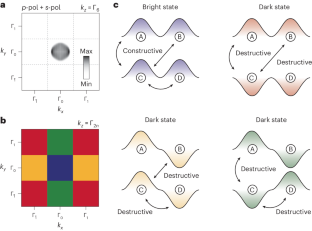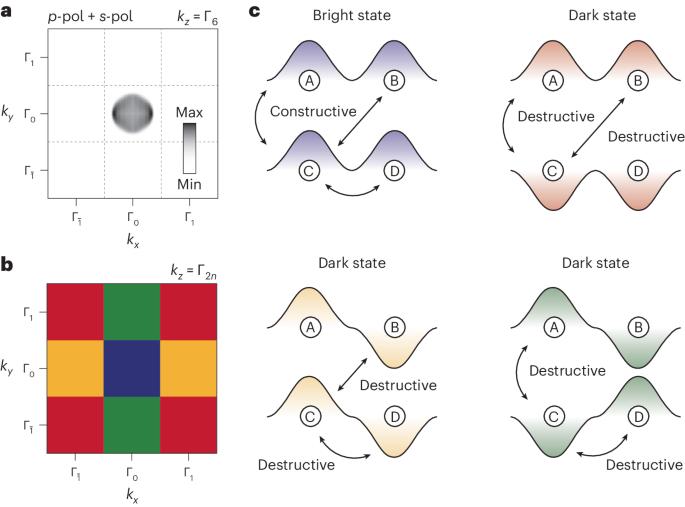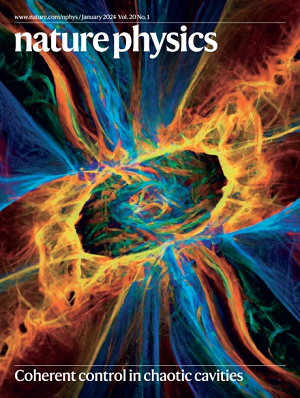具有两对子晶格的固体中检测不到的电子
IF 17.6
1区 物理与天体物理
Q1 PHYSICS, MULTIDISCIPLINARY
引用次数: 0
摘要
角度分辨光发射光谱测量确定了二硒化钯、铜氧化物超导体和卤化铅过氧化物中的暗电子状态。这些暗态归因于每种固体中的两对亚晶格,这导致了双重两级量子系统,其中可能发生双重破坏性干涉。本文章由计算机程序翻译,如有差异,请以英文原文为准。


Undetectable electrons in solids with two pairs of sublattices
Angle-resolved photoemission spectroscopy measurements identify dark electron states in palladium diselenide, cuprate superconductors, and lead halide perovskites. These dark states are attributed to the two pairs of sublattices in each of the solids, which leads to a double two-level quantum system in which double destructive interference can occur.
求助全文
通过发布文献求助,成功后即可免费获取论文全文。
去求助
来源期刊

Nature Physics
物理-物理:综合
CiteScore
30.40
自引率
2.00%
发文量
349
审稿时长
4-8 weeks
期刊介绍:
Nature Physics is dedicated to publishing top-tier original research in physics with a fair and rigorous review process. It provides high visibility and access to a broad readership, maintaining high standards in copy editing and production, ensuring rapid publication, and maintaining independence from academic societies and other vested interests.
The journal presents two main research paper formats: Letters and Articles. Alongside primary research, Nature Physics serves as a central source for valuable information within the physics community through Review Articles, News & Views, Research Highlights covering crucial developments across the physics literature, Commentaries, Book Reviews, and Correspondence.
 求助内容:
求助内容: 应助结果提醒方式:
应助结果提醒方式:


